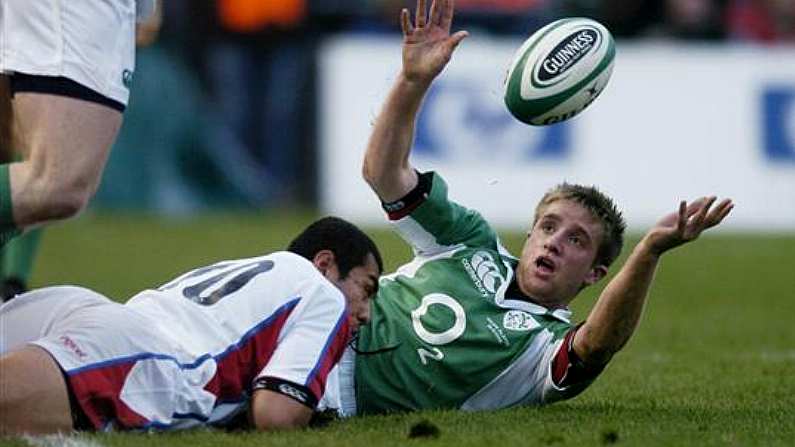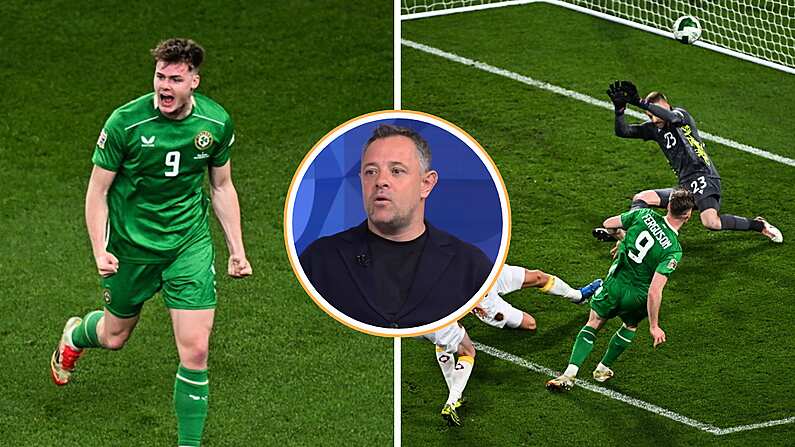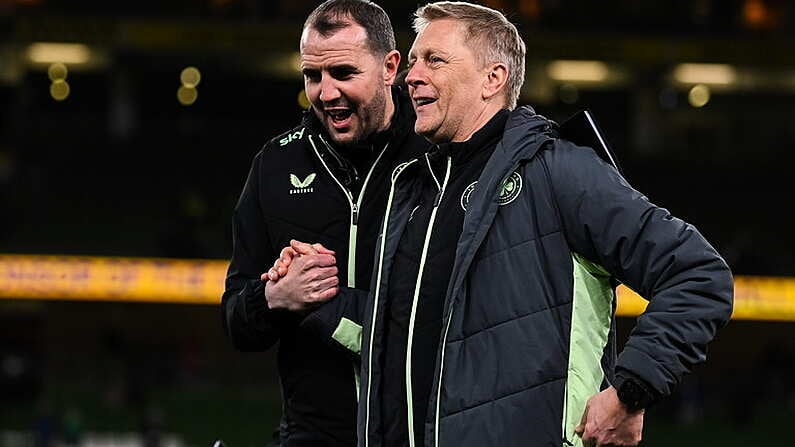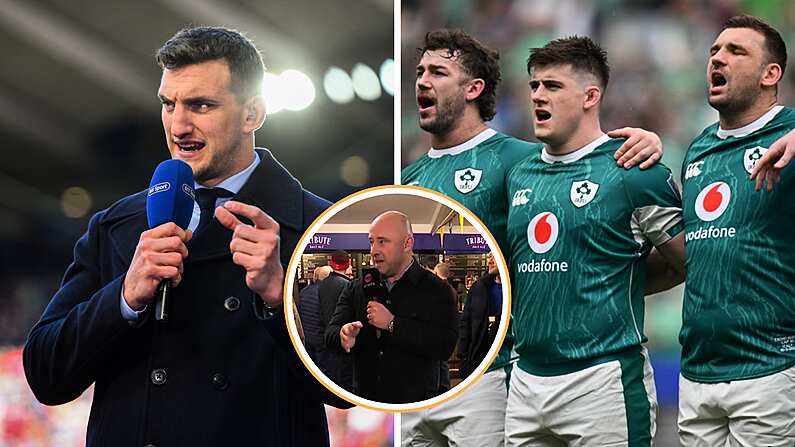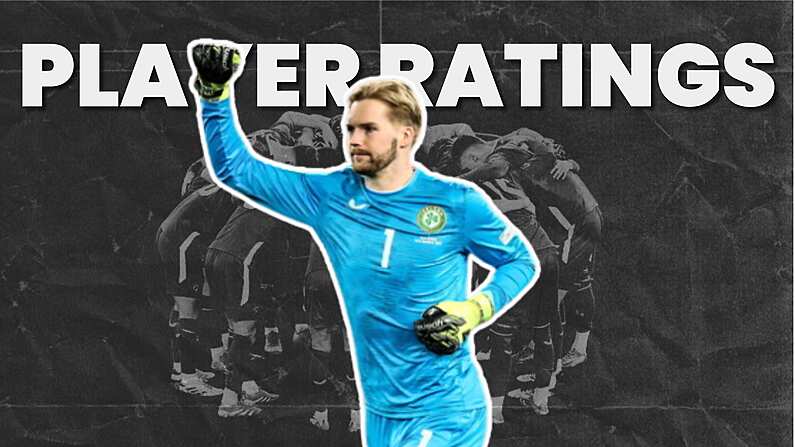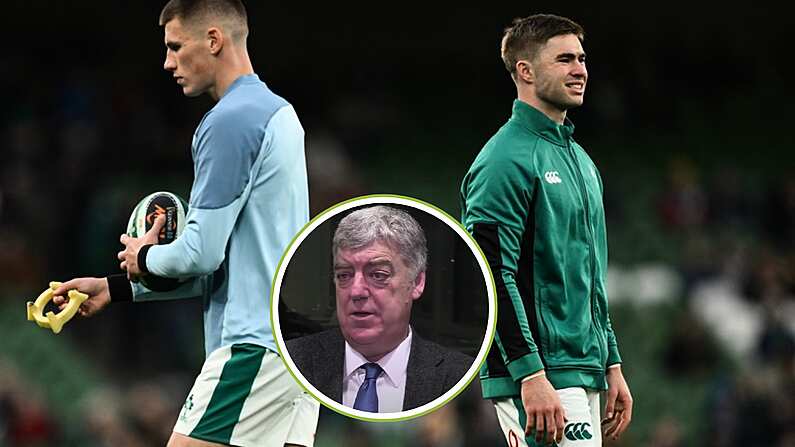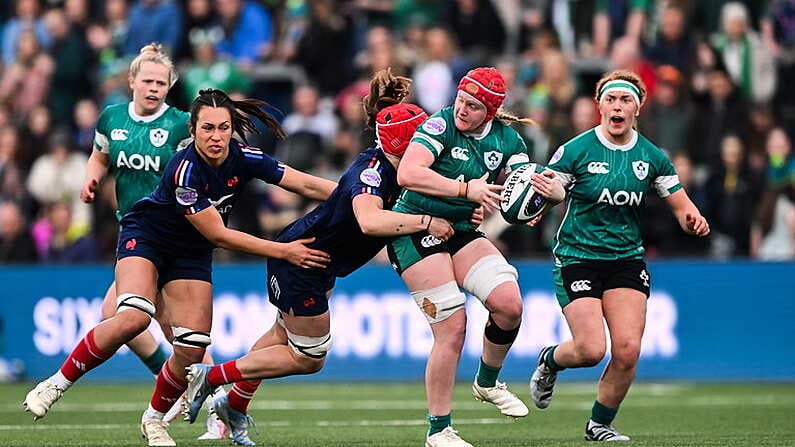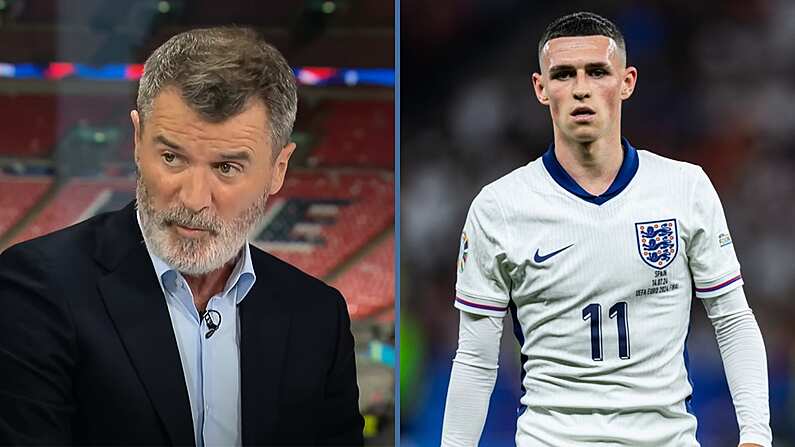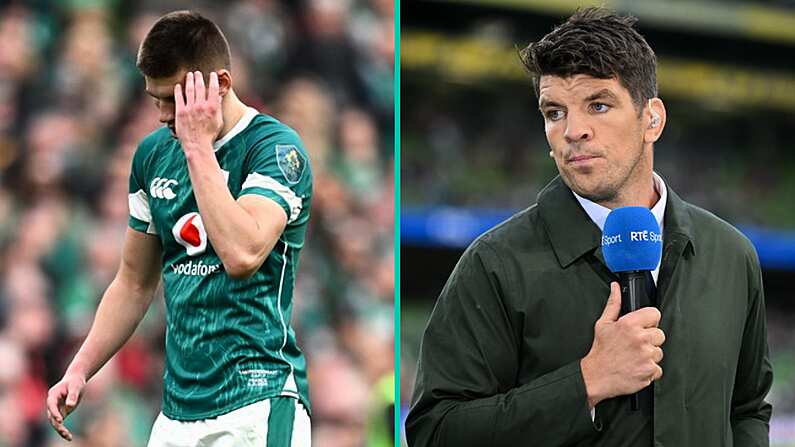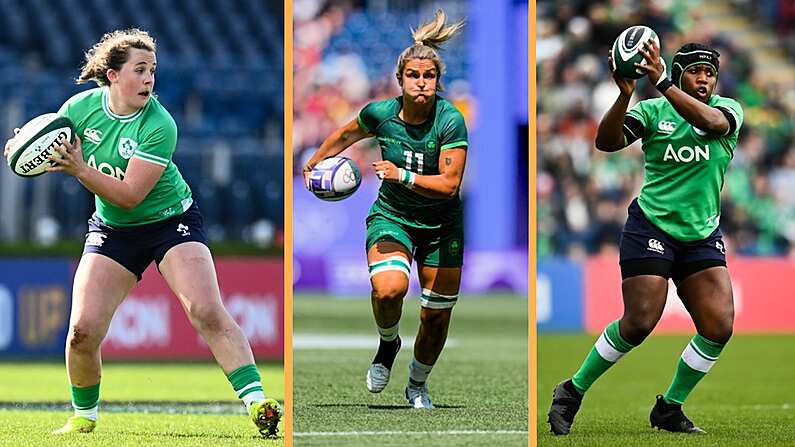Luke Fitzgerald, who announced his retirement from rugby this morning at just 28-years-old, will be remembered as being part of the most successful Leinster and Ireland sides of the modern era.
His trophy haul is as impressive as any player in the game this side of the hemisphere. Yet, despite winning almost everything there is to win with his province, and being part of the record-breaking Irish Grand Slam side of 2009, he will unfortunately be remembered for the injuries which so often sidelined him and ultimately curtailed the career of one of the most naturally talented players this island has ever produced.
Fitzgerald grew up in a rugby family. His father Des won 34 caps in Ireland’s front row, the same number his son would win before hanging up his boots, but this strange cosmic coincidence is where the similarities ended on the rugby pitch. Luke was as fleet-footed a player as anyone who has every worn the blue of Leinster or the green of Ireland and, even at a young age, this was something which separated him from his peers.
Luke Fitzgerald (right) lines up against St. Michaels in the 2006 Leinster Senior Cup Final. He would make his international debut eight months later.
It was in the halls of Blackrock College, the school that produced Brian O’Driscoll and Brendan Mullin, where Fitzgerald would first begin to craft his reputation as one of the brightest prospects in Irish rugby. In 2004, a few months removed from his 17th birthday, Fitzgerald won the first of two Senior Cup medals. He followed that the following year by being named Irish Examiner Young Rugby Player of the Year and, in 2006, won another Senior Cup medal for Blackrock College.
The career progression for a young rugby player at this stage of their development is usually set in stone. They’d join up with the provincial academy, play underage rugby at a higher level and work on the transition from schools to the professional level. This is the path that Robbie Henshaw took. More recently, Garry Ringrose was given time to adapt to the new setting before being thrust into contact with players a decade his senior.
Not Luke Fitzgerald though.
Such was his talent that, just a few months after lining out for Blackrock College for the last time, he was fast-tracked into the Leinster squad for their Magners League campaign. He made his debut in the blue of his province against Edinburgh in September of 2006 and would tog out for them a further 17 times that season, including three appearances and a try in the Heineken Cup.
In November of 2006, three months after his provincial debut and just barely six months removed from doing his leaving cert, Fitzgerald became the youngest Irish player to be capped by Ireland in 29 years when Eddie O’Sullivan handed the 18-year-old a test debut against the Pacific Islands.
Luke Fitzgerald is tackled by Tusu Pisi on his international debut against the Pacific Islands.
This seemed like the start of a prodigious career for province and country. And for a spell, it was.
With a promising first start for Ireland on the wing under his belt, Fitzgerald was given the added responsibility of starting against the Barbarians in the centre quickly after. A promising performance against the touring party, including a monster hit on the gargantuan Lesley Vainikolo, led to a public pressure on O’Sullivan to select the youngster alongside Brian O’Driscoll for the forthcoming test against New Zealand.
Ominously, Fitzgerald would withdraw through injury.
We didn't know it at the time but this was something that Irish rugby fans were going to become all too familiar with over the course of the next decade. Fitzgerald became a regular in the Leinster team from 2006 onwards and can now look back upon 154 caps and 32 tries for Leinster, becoming a vital cog in the side that became the strongest force in European rugby between 2008 and 2011.
He can also count himself as a starting member of, on paper at least, Ireland's most successful national team after starting each of Ireland's 2009 Grand Slam winning games on the wing of Declan Kidney's all-conquering side.
Luke Fitzgerald evades Ryan Jones in Ireland's Grand Slam win in Cardiff, 2009
Yet despite all these plaudits, Luke Fitzgerald's career will unfortunately be remembered as being one of untapped potential.
Few players have been as unfortunate with injuries as Fitzgerald and it speaks to his utter resilience - and the severity of the neck problem which caused him to call time on his career - that he was able to keep coming back from successive setbacks, time after time after time.
He has had problems with his knee, hip, abductor, groin, shoulder, neck and numerous other afflictions which caused him to be a frequent visitor to the Leinster treatment room. He has twice before battled back from long term career-threatening injuries.
Speaking last year to TV3 last year about his injury problems, Fitzgerald said:
I did (fear for my future) actually. I felt there was no escaping it really. The guys were unbelievably patient with me. There were a couple of times when I just walked out and said 'I can't, I can't do this. I've done months of rehab and I still feel like I'm going nowhere.'
This latest neck injury, aggravated in the PRO12 final defeat to Connacht a month ago today, seems to have been one injury too far for Fitzgerald.
34 international caps isn't nearly enough for a man of such natural, effortless talent a decade after first wearing an Irish jersey. Four tries seems paltry to what we might have expected when seeing the teenager graduate straight from school to being selected against the All Blacks in the space of eight months.
This should have been a player who became Leinster's all-time most capped player and been in the running for their top try scorer in history but his body's inability to withstand the rigours of the game robbed him and us of seeing if that was truly possible.
Luke Fitzgerald, unfortunately, is the nearly-man of Irish rugby.

